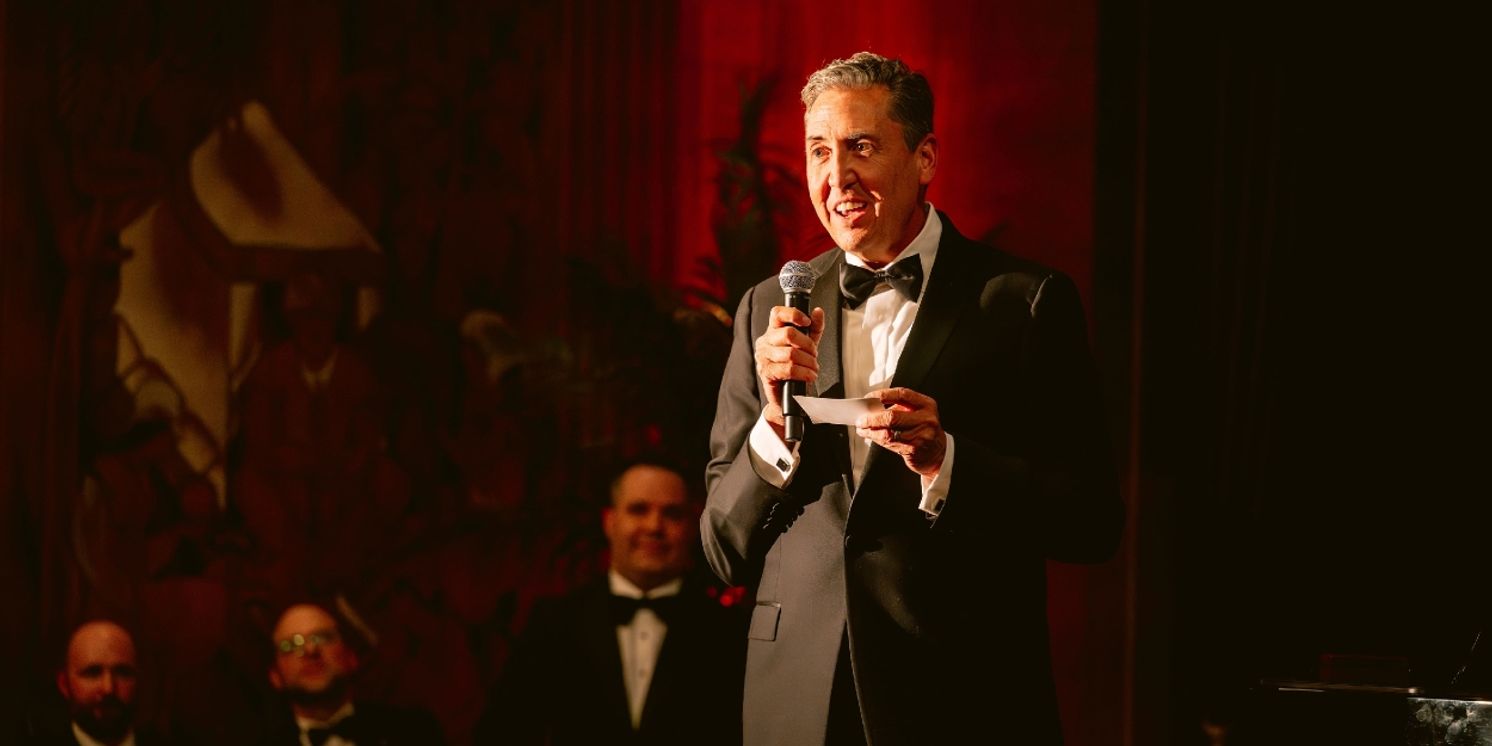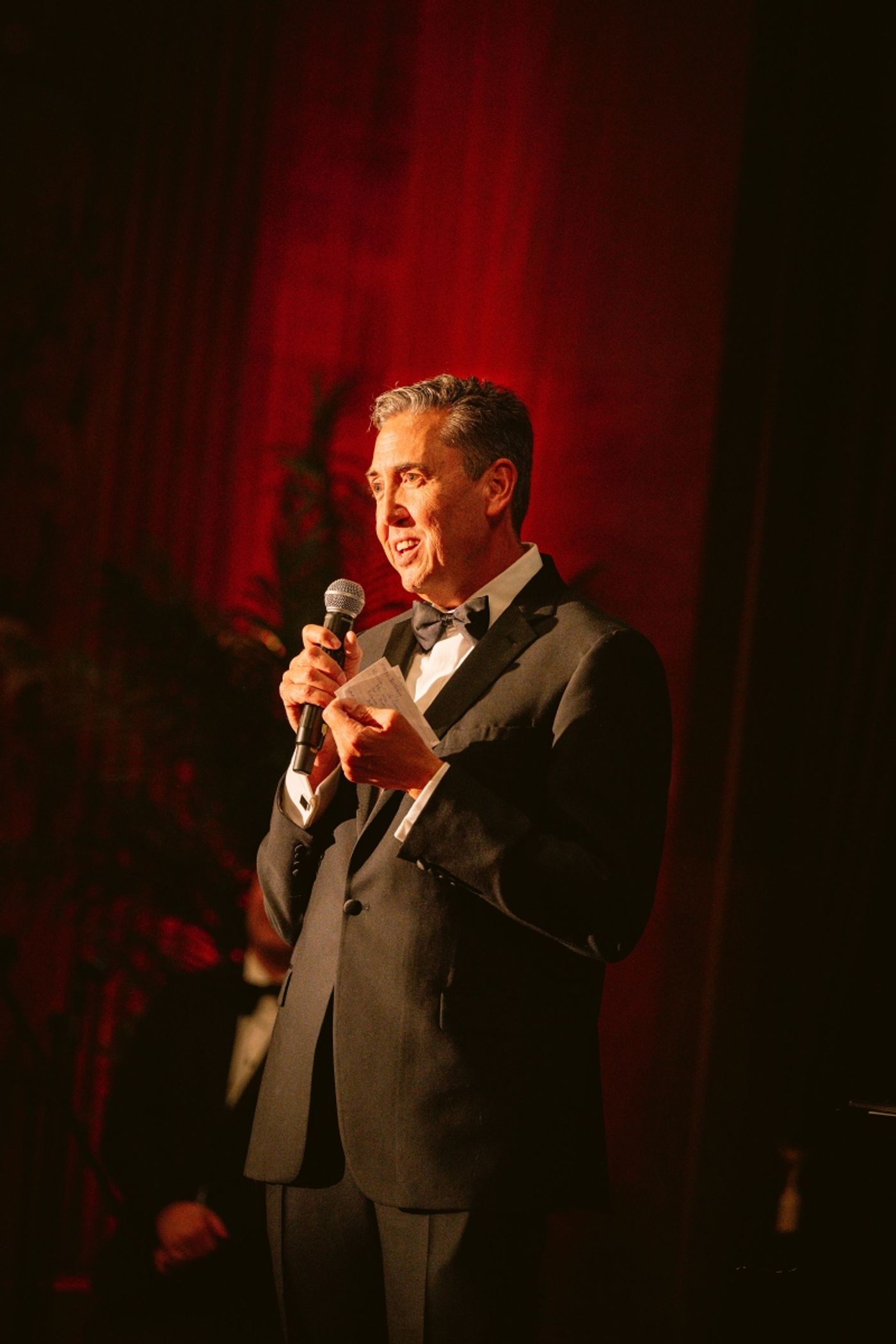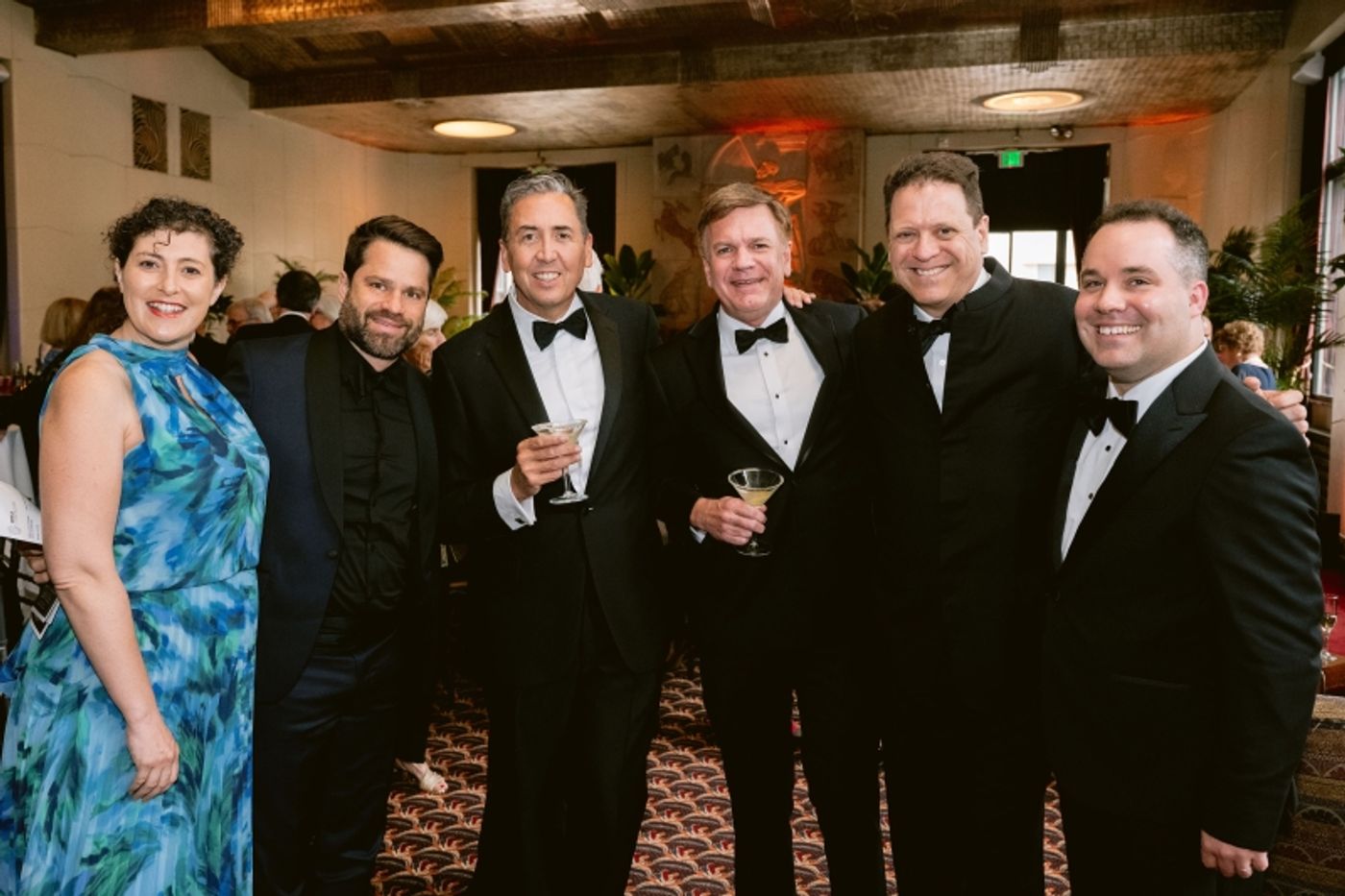Interview: John Churchwell of Merola Opera Program's 2025 SUMMER FESTIVAL
In celebration of Pride Month, BroadwayWorld chats with Churchwell about the Merola Summer Festival, running June 26th to August 16th in San Francisco

Since June is Pride Month, what better time to celebrate the wealth of talented LGBT individuals who help make the Bay Area performing arts scene so vibrant? Pianist and coach John Churchwell is just one shining example, though his name might not be familiar to audiences because many of his contributions are offstage. The Tennessee native, who resides in Berkeley with his husband of 21 years, Stan Michael, is one of the key figures behind the Merola Opera Program 2025 Summer Festival. Churchwell provides critical mentorship to the program’s young artists, helping develop the talents of singers who will hopefully go on to enjoy significant international careers. This is a role he is especially well suited for given that he himself is a Merola alum.
And he certainly has his work cut out for him, as this year’s Merola Summer Festival has a bit of something for everyone, kicking off June 26th with a vocal/piano recital called “A Grand Night for Singing: An American Songfest,” a program including selections from the Broadway cannon as well as more recent musicals, plus spirituals, jazz and classical selections. (See complete listing of performances at the end of this article.) On top of that, there are his ongoing duties as San Francisco Opera’s longtime Head of Music Staff. And - he also has a thriving career as a recital pianist for some of opera’s top stars.
I caught up with Churchwell by phone recently to learn a little more about how he got to where he is. We talked about his seminal Merola experience, why opera and musical theater seem to appeal so deeply to queer audiences, what it’s like to perform onstage with famous divas, and what Pride Month means to him. I found Churchwell to be wonderfully articulate, an engaging mix of erudite and earthy. When he says he could never have imagined the life he has making gorgeous music with great friends, I totally believe him. The following conversation has been edited for length and clarity.
First off, let me wish you Happy Pride!
It’s funny, because of my work schedule, I rarely get to take advantage of a lot of the things that are going on in San Francisco during Pride Month. But this year we’re doing a special concert to celebrate, which is exciting. I think that’ll be extra fun.
How would you describe your role with the Merola Summer Festival?
Well, every year we have about 22 to 24 singers come in, as well as 5 pianists and a director, and it’s really a summerlong audition process. As we are starting to see which singers are rising to the top, shall we say, or really making a lasting impression, I work with Carrie-Ann Matheson and Markus Beam, who are the directors of the Merola Program, to identify which of those people are standouts, and I will work with them one-on-one to understand a little bit more about how they work as young artists, or as mature artists, and see who’s responsive, see who is in the right place in their lives to really take advantage of the kind of coaching and education that the [San Francisco Opera] Adler Program really offers.

As a Merola alum yourself, what were your main takeaways from that experience?
Well, when I came to Merola, it was the first time I had really ever been west of the Mississippi. I grew up in the South and California represented a part of the country I didn’t know anything about, so I came in ready to just take everything in. I had a really eye-opening experience, not only musically, because I was surrounded by all these incredible artists and teachers, but also I had host housing in Haight-Ashbury. It was amazing just to experience the diversity of this community.
And the Merola Program itself, for whatever reason, that summer we were down one pianist and so we were all working even harder than normal, and I had a moment where I realized that this was going to be whatever I made of it. As much as I wanted to put into it, I felt like it was gonna come back to me twofold. So I redefined how hard I could work or how many hours I could devote to this group of artists and teachers and mentors, and really gave myself completely over to that.
Many things in my life – personally and musically – kind of stemmed from that summer. People I met, people who would hear me and hire me later, people who helped me personally, meeting my husband and people who would be in my wedding, it was just this incredible chain of events that I’d never really imagined coming to California.
So that’s a roundabout way of saying I feel like there were not a lot of limitations put on me when I was in Merola. It was more of a breaking down of obstacles and clearing the path of distractions so that I could figure out what’s possible if I give it everything I’ve got, if I devote all of my time and energy and heart and soul to musicmaking and studying with these people.
Merola offers you the chance to do that without worrying about earning money or where you’re gonna live, just curating your schedule to give you all these opportunities and loading you up with as much as you can take, on an individual basis. I think everyone has their own kind of cocktail of what’s enough and what’s too much, but I came out of the program feeling like there was nothing I couldn’t do if I really put my mind to it.
You hail from Knoxville, Tennessee originally. Was classical music part of your family’s culture?
Not at all. Like most people I knew and went to school with, church was the community that brought everyone together. Being raised Southern Baptist, I first came to love music through singing and playing piano and organ in church. My first really formidable teacher was the church organist, who inspired me and introduced me to classical music.
My upbringing sounds similar, even though I’m from Iowa. My family loved music, but it was always centered around the Baptist church. Then I moved to San Francisco as a young adult and it was like – bam! – suddenly not only was opera accessible, but it almost felt like my birthright as a gay man to avail myself of it. What do you think it is about opera that seems to speak to queer people?
I’m not sure if I would separate opera from musical theater. It’s the chance to reinvent yourself or be whoever you want to be. And if that’s aided by costumes, lights and a set, and all these incredible musicians and directors, it’s really about storytelling. I think people go to movies and opera and shows to kind of take themselves out of their daily world and put themselves somewhere else. And I think the same is true for the people who are in the shows. It gives them a chance to access emotions and tell stories that maybe aren’t part of their upbringing or social environment. They get to live this incredibly rich, three-dimensional life as someone else, as many different people, you know?
In terms of traditional opera, there’s something grand and elegant about it that involves a lot of ornate, historical kind of beauty. And ballet is part of opera, so everything – dancing, singing, acting – all that is all combined which I think is just a celebration of being able to express yourself.
Modern opera has different things to offer, I think largely because we’re often dealing with more relatable stories, or something that people have experienced in their lifetime in a more obvious way. We’re about to remount [Jake Heggie and Terrence McNally’s ] Dead Man Walking here this fall, which we did the premiere of 25 years ago, and it’s just amazing how accessible that opera is from the very first note. There is no barrier between sitting down in your seat, the music starting, and being able to step right into this musical world, the story, the drama of it.
I saw that production in 2000 and loved it. It remains for me the gold standard of what contemporary opera can be, just because it was so moving. What was your role in making that premiere happen?
I had just started at San Francisc Opera a couple of years before on the music staff. During that show, I was working with our maestro Patrick Summers and the artists, particularly Susie Graham, coaching and preparing everyone. I think in that particular workshop we had other people singing as we put the piece together in its early, early stages. Then when everyone arrived to actually produce the piece, there were just mountains of music to learn and things to digest and incorporate in such a short time.
That was pretty early on in your career. Did you understand at the time that you were a part of something so extraordinary?
I don’t think I knew it would go on to be the most performed American opera in the last 50 years, which I think it currently is, but there was clearly something very special about the combination of all of this talent who were leading the helm, who had never done this before. It was Jake’s first opera, Terrence’s first opera libretto, and the director’s first opera –
- Joe Mantello, if I remember correctly?
Yeah, I believe it was his first and only opera. You had all these people who were in uncharted waters to a certain degree so there was this incredible excitement. And then you had two really incredible, larger-than-life artists, with Frederica von Stade and Susan Graham going on this journey. So it certainly had every element you would hope was gonna make it a huge success.
I have been on many, many premieres that don’t have that kind of success, and you can’t really predict it. Like I’ve gone through the entire process with a new work, and you see and feel how hard everyone is working and how many years people have poured into making this piece ready to produce and everyone’s giving it 150%, but it doesn’t mean it’s going to be a success.
The joy of that is that while you’re in the process it is still so satisfying and rewarding because you’re bringing something new to life and people are going to hear something they’ve never heard before and hopefully feel something they’ve never felt. In that way, it’s always a success. But certainly you hope that it’s a piece other companies are gonna want to produce.

Distinguished Alumni Award for his contributions to the Merola Opera Program and the operatic world
as the Head of Music Staff at San Francisco Opera and Co-Director of the Music Academy of the West’s Vocal Institute.
You’re also a recital pianist for some pretty amazing singers. Right before a performance when you’re waiting to go onstage with, say, Renee Fleming or Joyce DiDonato, what are your thoughts in that moment?
Well, part of it is “Don’t fuck up!” [laughs] But mostly it’s, “I can’t believe this is my life.” That my work is making music with incredible people, and people that I admire with music and away from music. So many of the people I get to perform with are really good friends of mine and people I would be happy to go out to dinner with or go on a trip with, with no music involved at all. In truth, you spend a lot more time with these people not making music than you do rehearsing, and just trying to build genuine relationships. That’s how you learn how to communicate with each other.
Either verbally or musically, you have to have a certain rhythm to your relationship in a way that talks to each other. If your relationship is easy away from music, it sets you up to have a really great partnership onstage. And then when you walk out onstage, it doesn’t feel as stressful or nerve-racking as it could because you’re two people going into this together, with the same goals.
Circling back to Pride Month, what does that mean to you at this point in your life?
This may be an odd way to answer your question, but I really feel like every month is Pride Month for me. Like I’m not waiting for June to unleash something special or to try something different. I absolutely feel like every day, every month, I want to be proud of what I’m doing. I want to be producing great music and working hard in a way that I’m proud of that, and that people look at me and value the work that I’m doing. Perhaps this is a month that we get to uniquely celebrate that, or take a moment just to acknowledge it, but I feel like it’s my goal twelve months a year.
(all photos by Kristen Loken)
---
The 2025 Merola Summer Festival kicks off June 26 with a vocal/piano recital, “A Grand Night for Singing: An American Songfest,” an intimate evening celebrating the richness and diversity of American song. The Festival continues July 10 and 12 with the Schwabacher Summer Concert, “It’s Complicated: Love & Opera,” a semi-staged performance featuring extended scenes from operatic masterpieces by Donizetti, Puccini, and Gounod, accompanied by the San Francisco Opera Center Orchestra. On July 31 and August 2, Merola presents a fully staged production of Rossini’s seldom performed comedy, “Le Comte Ory,” brimming with Rossini’s signature wit, vocal acrobatics, and dazzling ensembles. All three performances will take place at the San Francisco Conservatory of Music’s Caroline H. Hume Concert Hall. The Festival concludes August 16 with the “Merola Grand Finale,” a spectacular staged concert celebrating opera’s rising stars at the War Memorial Opera House, showcasing the 2025 “Merolini” in a breathtaking program of arias and ensembles with full orchestra. Tickets can be purchased at merola.org or by calling the San Francisco Opera Box Office at 415-864-3330.
Videos

